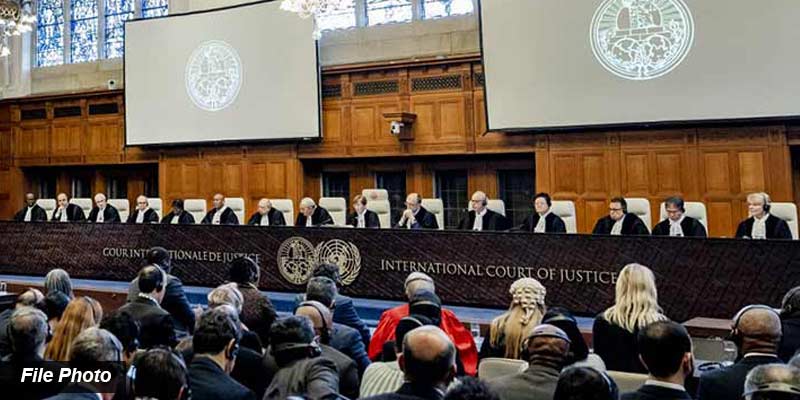- World
- May 06
International Court of Justice rejects Sudan’s genocide case against UAE
• The International Court of Justice (ICJ) dismissed Sudan’s case accusing the United Arab Emirates of fueling genocide in Darfur, saying it lacked jurisdiction.
• Sudan had accused the UAE of backing the paramilitary Rapid Support Forces (RSF), alleging its support amounted to complicity in genocidal acts against the non-Arab Masalit population in West Darfur.
• The conflict between the RSF and the Sudanese army has claimed thousands of lives and displaced over 12.7 million people since April 2023.
• In the decision, the UN’s top judicial body ruled by a vote of 14 to two that it could not proceed with the case brought by Sudan under the Convention on the Prevention and Punishment of the Crime of Genocide (Genocide Convention) and declined to impose any provisional measures, as Sudan had requested.
• The Court also removed the case from its general list.
• The Court however noted that while it could not hear the case, all States remain bound by their obligations under the Genocide Convention.
The International Court of Justice
• The International Court of Justice (ICJ) is the principal judicial organ of the United Nations.
• It is informally known as the “World Court”.
• It was established by the United Nations Charter in June 1945.
• The first members of the ICJ were elected on February 6, 1946, at the first session of the UN General Assembly. The Court held its inaugural sitting at the iconic Peace Palace in The Hague, on April 18, 1946.
• The Court is composed of 15 judges elected for a nine-year term by the General Assembly and the Security Council of the United Nations.
• The seat of the Court is at the Peace Palace in The Hague (Netherlands).
• Of the six principal organs of the United Nations, it is the only one not located in New York, USA.
The Court has a twofold role:
1) To settle, in accordance with international law, through judgments which have binding force and are without appeal for the parties concerned, legal disputes submitted to it by States.
2) To give advisory opinions on legal questions referred to it by duly authorised United Nations organs and agencies of the system.
• The jurisdiction of the Court comprises all cases which the parties refer to it and all matters specially provided for in the Charter of the United Nations or in treaties and conventions in force.
• The Court can only hear a dispute when requested to do so by one or more States. It cannot deal with a dispute on its own initiative. Neither is it permitted, under its Statute, to investigate and rule on acts of sovereign States as it chooses.
• States which are not members of the United Nations may become parties to the Statute of the Court on conditions to be determined in each case by the General Assembly upon the recommendation of the Security Council.
How is ICJ different from ICC?
• The International Criminal Court (ICC) is an independent judicial body with jurisdiction over persons charged with genocide, crimes against humanity and war crimes.
• The ICC is not part of the UN.
• Situated in The Hague, Netherlands, the ICC is governed by the Rome Statute adopted by the UN in 1998. It entered into force in 2002 upon ratification by 60 States.
• The ICC is established to investigate, prosecute and try individuals accused of committing the most serious crimes of concern to the international community.
• International Court of Justice (ICJ) is the principal judicial organ of the United Nations for the settlement of disputes between States.
• The ICJ has no jurisdiction to try individuals accused of war crimes or crimes against humanity.
Manorama Yearbook app is now available on Google Play Store and iOS App Store

